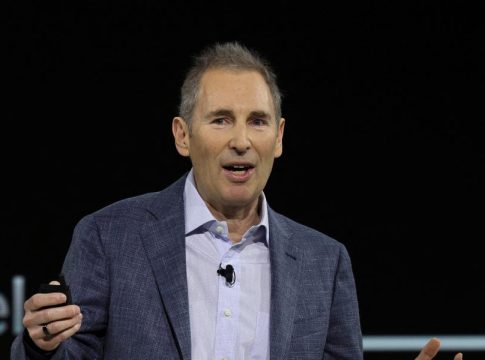Navigating the AI Warning: Insights from Business Leaders
As artificial intelligence (AI) rapidly evolves, its implications for employment and corporate dynamics are generating significant buzz. Recently, Amazon CEO Andy Jassy made headlines by openly addressing the potential impact of AI on the workforce in a company-wide memo. His candid acknowledgment has sparked conversation within the corporate community, urging both employees and executives to brace for changes.
AI: A Double-Edged Sword
Jassy’s message wasn’t merely a corporate formality; it highlighted an unavoidable truth: AI will transform work as we know it. He indicated that the technology could potentially lead to a reduction in white-collar jobs at Amazon, a somber notion for the second-largest private employer in the U.S., which boasts about 1.5 million workers.
- Sense of Urgency: Industry experts view Jassy’s approach as both refreshing and necessary. Christopher Myers, a leadership faculty member at Johns Hopkins, notes that early acknowledgment of AI’s transformative power can alleviate employee anxiety. Emphasizing transparency allows workers to prepare and adapt rather than succumb to uncertainty.
Reactions from the Tech Sphere
Jassy isn’t alone in delivering such warnings. Other leading figures in tech, including Sam Altman of OpenAI and Jensen Huang of Nvidia, have echoed similar sentiments. They stress that AI will not merely augment human capabilities but may render some roles obsolete.
- A Mixed Bag of Reactions: Former Amazon engineers express that while concerns are valid, many AI advancements are meant to bolster rather than replace skilled workers. Understanding these nuances can ease fears surrounding job security.
Transitions and Adaptations
The Human Element: Amid growing worries, industry leaders like Duolingo’s CEO Luis von Ahn advocate for a mindset shift. He encourages employees to approach AI with curiosity, highlighting the importance of embracing new tools rather than fearing them. In this context, Jassy’s message underscores the need for employees open to learning and adapting; those who do will be better positioned for success as corporate structures evolve.
- Reclaiming Humanity in the Age of AI: Elaine Ryan, a seasoned psychologist, emphasizes that while technology may advance, characteristic human traits such as emotional intelligence and experience will remain invaluable.
A Generation in Financial Limbo
Outside of the AI discourse, other societal issues are mingling with technological trends. Members of Generation X, dubbed the “sandwich generation,” are feeling financial strain managing both aging parents and adult children. As they balance these responsibilities, there’s a growing concern over their ability to retire comfortably.
- A Call for Balance: This demographic’s plight serves as a reminder that the workforce is undergoing a transformation not only with AI but also within family structures—highlighting the importance of support systems for navigating these complex dynamics.
Conclusion: Embracing the Future
As we stand on the precipice of a technological revolution, the dialogue around AI is only beginning. Businesses that foster transparency, adaptability, and resilience will likely thrive, while individuals are encouraged to proactively engage with the shifting landscape of work. The challenge remains: how can we ensure that as AI evolves, human activities continue to flourish alongside it? The next steps are crucial for both corporate strategies and societal well-being—a balancing act we must all navigate together.

Writes about personal finance, side hustles, gadgets, and tech innovation.
Bio: Priya specializes in making complex financial and tech topics easy to digest, with experience in fintech and consumer reviews.

